US-Belarusian rapprochement Who is trying to derail it
Recently, Alexander Lukashenko announced a meeting with a US delegation, which is expected to take place in Minsk in the near future. However, this emerging dialogue has been met with strong disapproval from Belarusian nationalists and liberals living in exile in the West.
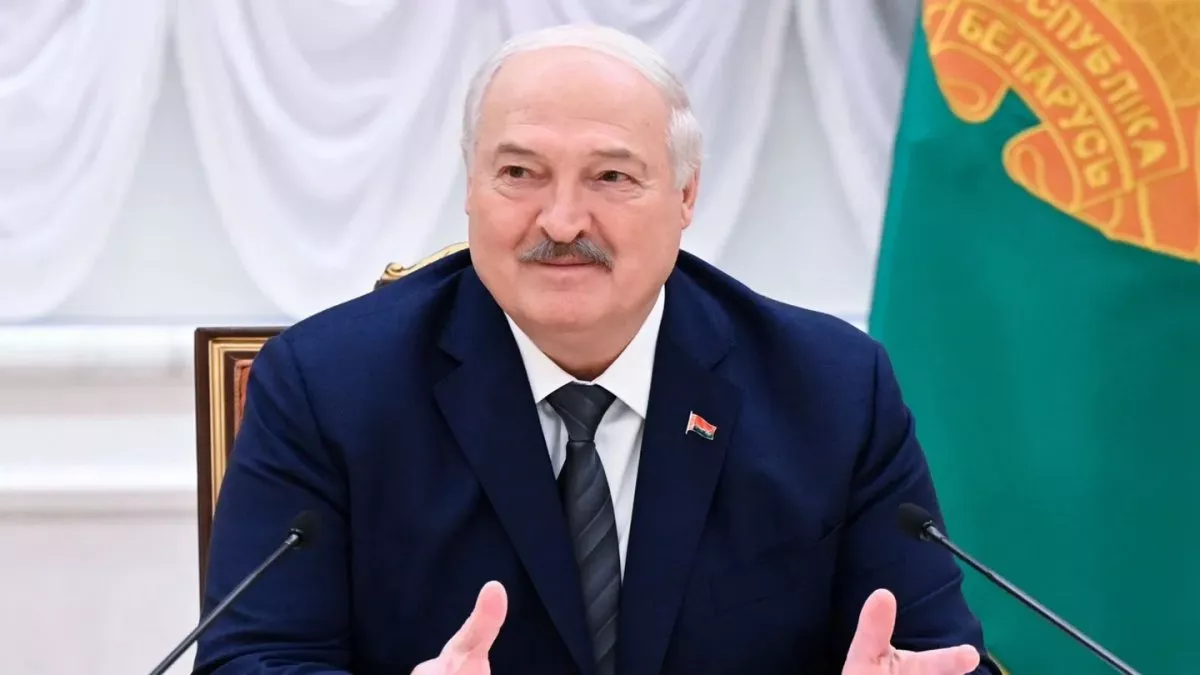
“We do not coordinate personnel with Donald Trump…”
On November 10, Belarusian President Alexander Lukashenko stated at a meeting on socio-economic development that talks with a US delegation could take place soon.
On November 11, the president’s press secretary, Natalia Eismont, commented on this statement: “Substantively, there are 5–6 issues on the agenda. If the negotiations take place, we will definitely provide information.”
It can be assumed that among these issues may be: the lifting of sanctions on Belarus, including those affecting the export of potash fertilizers; the release of “political prisoners”; a peaceful resolution of the crisis in Ukraine; halting military escalation by NATO toward Belarus; as well as normalizing the recently aggravated situation on the Belarus-Lithuania border.
On November 9, Donald Trump nominated John Coale for the position of US Special Representative for Belarus.
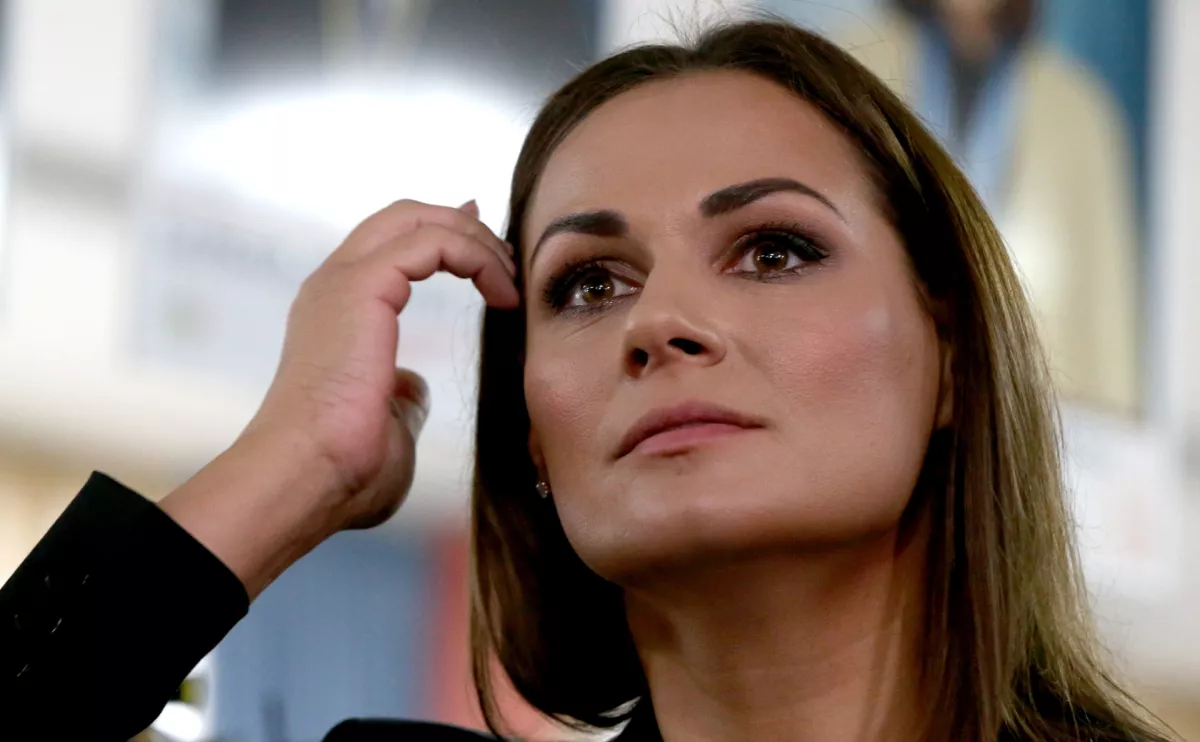
Belarusian President’s press secretary, Natalia Eismont, stated that Minsk has no objections to this nomination: “You know, we do not coordinate personnel with Donald Trump. We have been cooperating with John Coale for several years now, and this is not the first time. There is definitely no allergy. We are ready and will conduct business and negotiations with him.”
She also emphasised that the Belarusian side is open to talks with any country.
The 78-year-old John Coale and US State Department official Christopher Smith had already visited Belarus in April 2025. In an informal setting—over lunch at the Palace of Independence—they spoke with Alexander Lukashenko. Coale, a lawyer by profession, later openly and rather candidly spoke to the media about this visit. In particular, he admitted that his mission was “to charm him. To yuck it up with him.”
Nevertheless, the American envoy noted that Lukashenko is a shrewd politician.
“He does want better relations with the United States,” Cole said.
Another visit by John Coale—this time together with US Special Representative for Ukraine, Keith Kellogg—took place in June. Shortly after this trip, the President of Belarus pardoned a large group of prisoners, who were then relocated to Lithuania.
When announcing John Coale’s nomination as US Special Envoy for Belarus, Donald Trump called Alexander Lukashenko “the most worthy.”
The alliance of grants, sword, and ploughshare
However, this tentative thaw in Belarus–US relations is not welcomed by everyone. Primarily opposed are Western “hawks” and the Belarusian nationalist opposition under their influence. Of course, officially, none of the Belarusian opposition figures have dared to openly criticise the emerging rapprochement between Washington and Minsk: such statements could have fatal consequences in the form of losing access to the Western “feeding trough.” Nevertheless, it appears that the exiled opposition will do everything possible to ensure that the ongoing talks lead to entirely different outcomes.
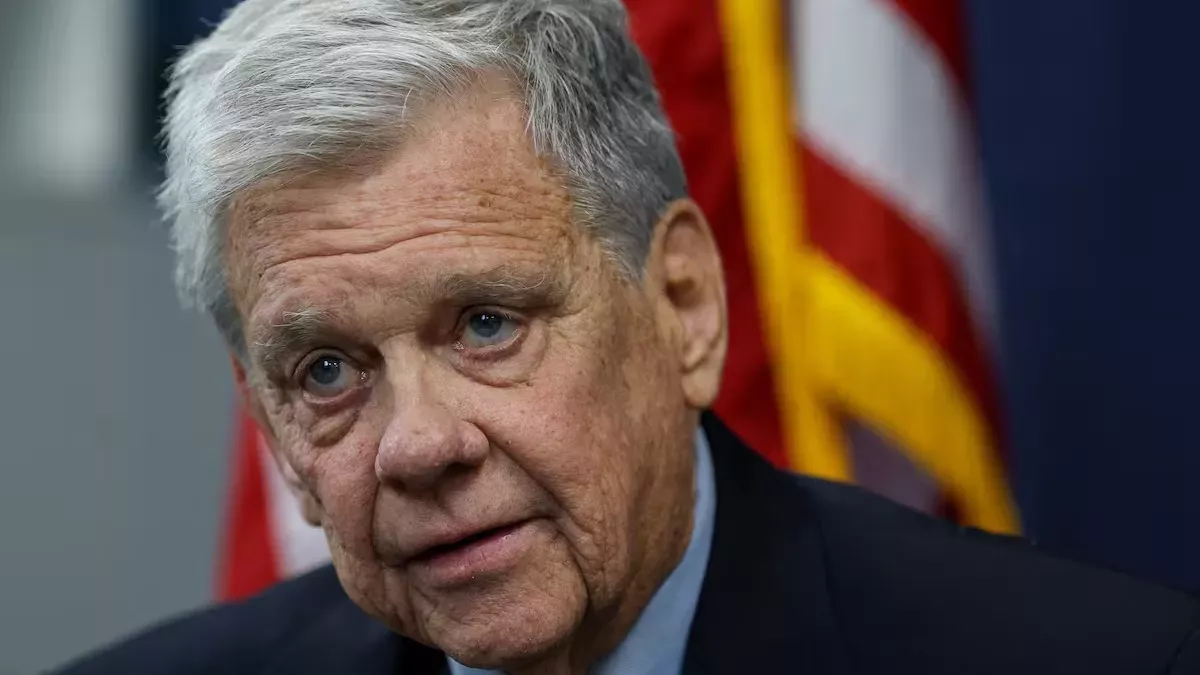
As soon as John Coale was nominated as US Special Envoy for Belarus, he received a call from the head of the “United Transitional Cabinet,” Sviatlana Tsikhanouskaya. The so-called “Belarusian Guaidó” congratulated Coale on his appointment and stated that she intends to continue working with American partners to pursue “real change in Belarus.”
Whether by coincidence or not, on the same day—November 12—a presentation of the “Concept of Lustration in Belarus,” prepared by Tsikhanouskaya’s office, was held in Prague. The event was attended by a representative of the Czech Foreign Ministry, as well as diplomats from Portugal, Ukraine, and Finland, along with guests from Poland. And although opposition figures insist that “lustration is not a tool of revenge,” the fate of most government officials and active supporters of Alexander Lukashenko, should the opposition come to power, looks rather bleak.
Meanwhile, the nationalist opposition seems to have finally found a convenient pretext to sabotage the planned normalization of relations between Minsk and the West—the recent crisis on the Belarus–Lithuania border. As early as November 9, Tsikhanouskaya’s office called on the US and EU to increase pressure on Belarus, demanding the imposition of new sanctions in response to flights by Lithuanian–Belarusian smuggling balloons.
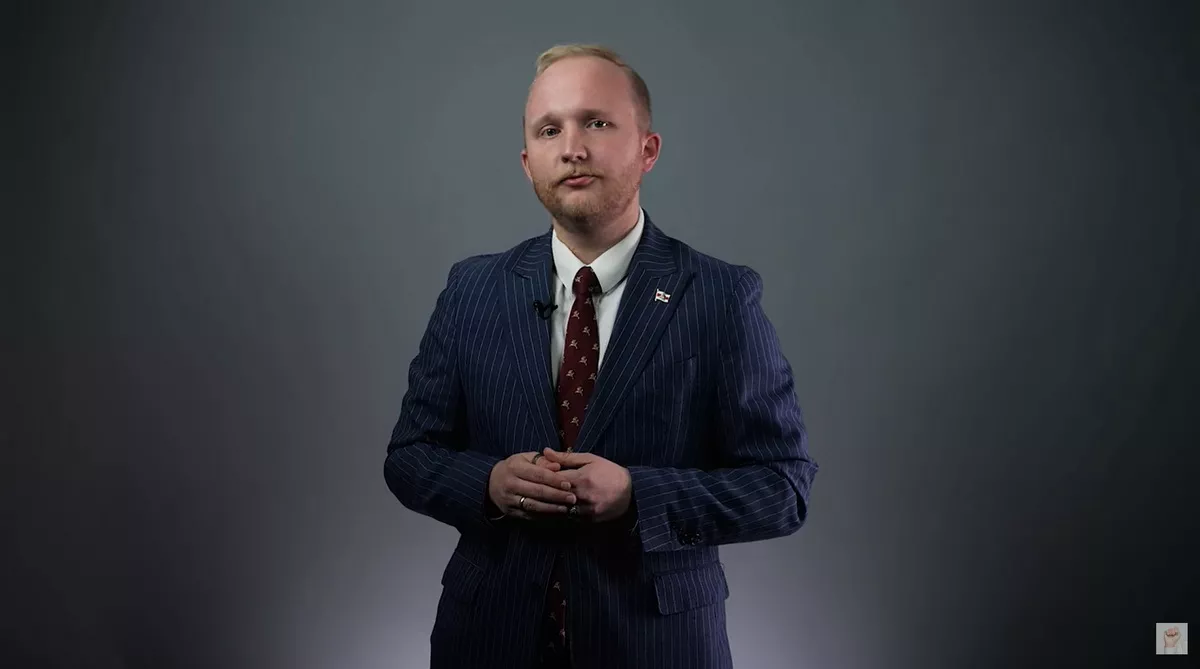
On the air of Euroradio (recognised as extremist by the Belarusian Ministry of Internal Affairs), Sviatlana Tsikhanouskaya’s foreign policy advisor, Dzianis Kuchynski, stated that her office, in its “communications” with the US administration, promotes a “carrot-and-stick” strategy toward Belarus. According to him, this approach aligns with the position of the American side and is understood in both the White House and the State Department. To support his point, Kuchinsky referred to a recent critical statement by John Cole following his meeting with the Lithuanian ambassador in Washington.
On November 10, Lithuanian Foreign Minister Gintautas Budrys also discussed the situation with John Cole and called for increased pressure on Minsk and the continuation of sanctions tightening.
Against this backdrop, it is becoming increasingly clear who and with what objectives may have been behind the provocations on the Lithuanian border—and why, immediately after the start of Belarus–US normalization, cross-border flights of Lithuanian–Belarusian smuggling weather balloons sharply increased.

Host Zmicier (Dmitry) Lukashuk asked a representative of the “Transitional Cabinet” whether the current negotiations with Lukashenko are for the Trump administration just another channel of communication with Putin—or if the Americans are pursuing broader goals in developing relations. Tsikhanouskaya’s advisor responded negatively, stating that the main objective of the dialogue is the release of “political prisoners.” Allegedly, this was precisely the approach that Tsikhanouskaya’s office had long requested from the American side.
At the same time, clearly nervous, the opposition figure tried to argue that the US has many other channels of communication with the Kremlin, and that communication through Belarus supposedly does not play a significant role. Whether out of misunderstanding or unwillingness to admit it, he ignored the fact that neither Marco Rubio nor Steve Witkoff could ever have even remotely comparable trust with the presidents of Belarus and Russia.
The host’s question about other, likely far more significant objectives behind the current increase in US–Belarus contacts was simply ignored by Tsikhanouskaya’s advisor, evidently uncomfortable for him.
At the epicentre of a global conflict
The office also claims that the very institution of the US Special Envoy for Belarus was established by Donald Trump allegedly “at the urgent request” of Sviatlana Tsikhanouskaya. It is obvious that the image of the “head of the Transitional Cabinet” requires constant demonstrations of active foreign policy engagement. Hence the loud statements, endless international meetings, and regular tours, which serve more as tools of self-promotion and attracting financial support.
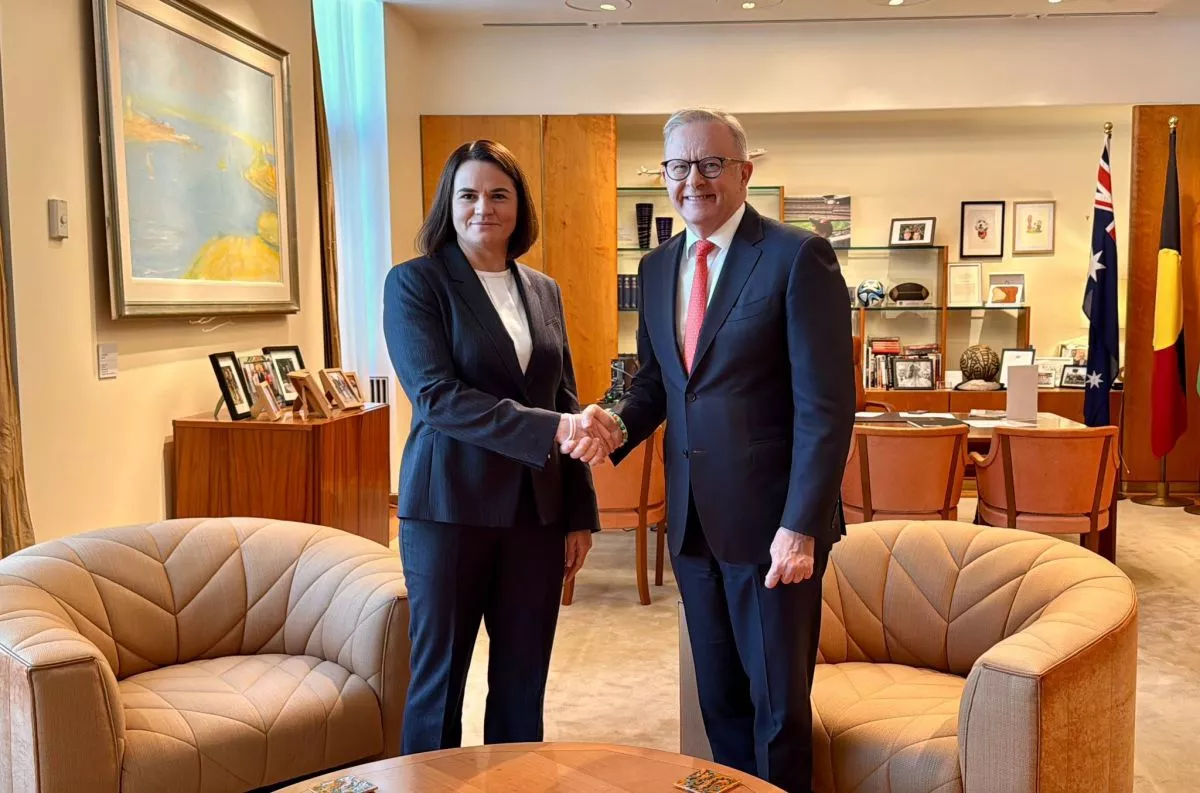
Also telling is Tsikhanouskaya’s recent visit with her team to the Southern Hemisphere—Australia and New Zealand—countries that are “very far away” from the Belarusian agenda and have no direct connection to the situation in Belarus.
At the same time, despite all the pomp of the “Transitional Cabinet” and the pretense of extraordinary activity, her status in the eyes of Western sponsors is steadily declining. In October, Lithuania decided to downgrade the level of security for Tsikhanouskaya’s office. Until recently, her protection was provided by the State Security Department—a structure responsible for safeguarding the president, the Speaker of the Seimas, and the Prime Minister of Lithuania—which cost the budget roughly one million euros.
Now, the security of the Belarusian opposition leader has been handed over to the Criminal Police Bureau—on the level of ordinary protection for witnesses and other citizens.
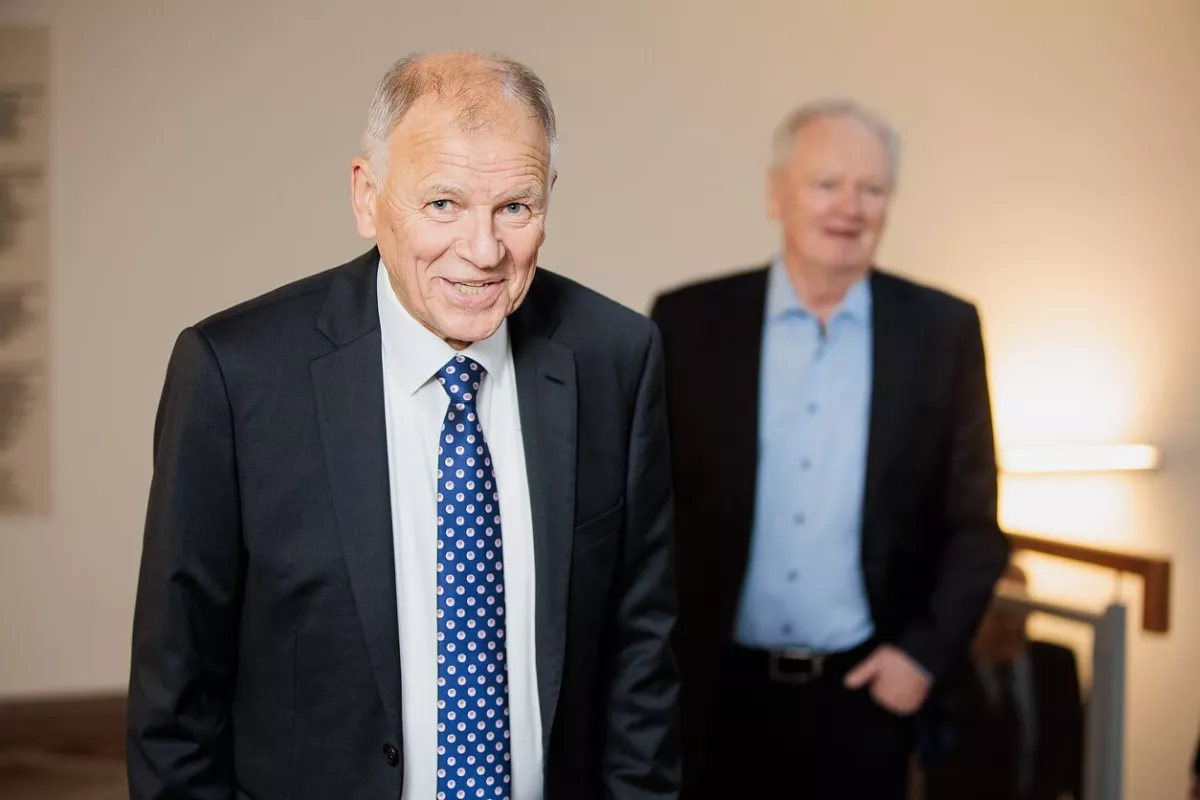
Honorary chairman of Lithuania’s ruling Social Democratic Party and Member of the European Parliament, Vytenis Andriukaitis, stated that the downgrade in security is due both to a reduction in threats and to the fact that Sviatlana Tsikhanouskaya is no longer able to influence social processes in Belarus.
The politician emphasised: “We need to look at the situation more broadly. Objectively speaking, Sviatlana Tsikhanouskaya no longer plays the role she did 2–3 years ago, especially after her husband’s release. New centres and new figures have emerged. The attention of the international community, media, and politicians is gradually shifting. Now the focus is on other events and personalities. For example, her husband is increasingly becoming the subject of media attention.
Moreover, Alexander Lukashenko’s regime behaves differently: it releases political prisoners and seeks to establish external contacts, including with Donald Trump. This is a more complex and multilayered picture than simply deciding someone’s level of protection.”
Andriukaitis also noted that nothing from the official Minsk side likely threatens Tsikhanouskaya.
The release of the last group of prisoners convicted for the events of 2020 caused notable shifts within the ranks of the political émigré community—so significant that some malicious voices claimed the group of pardoned individuals was deliberately selected to provoke a split within the émigré community. This primarily concerns Sergei Tikhanovsky.
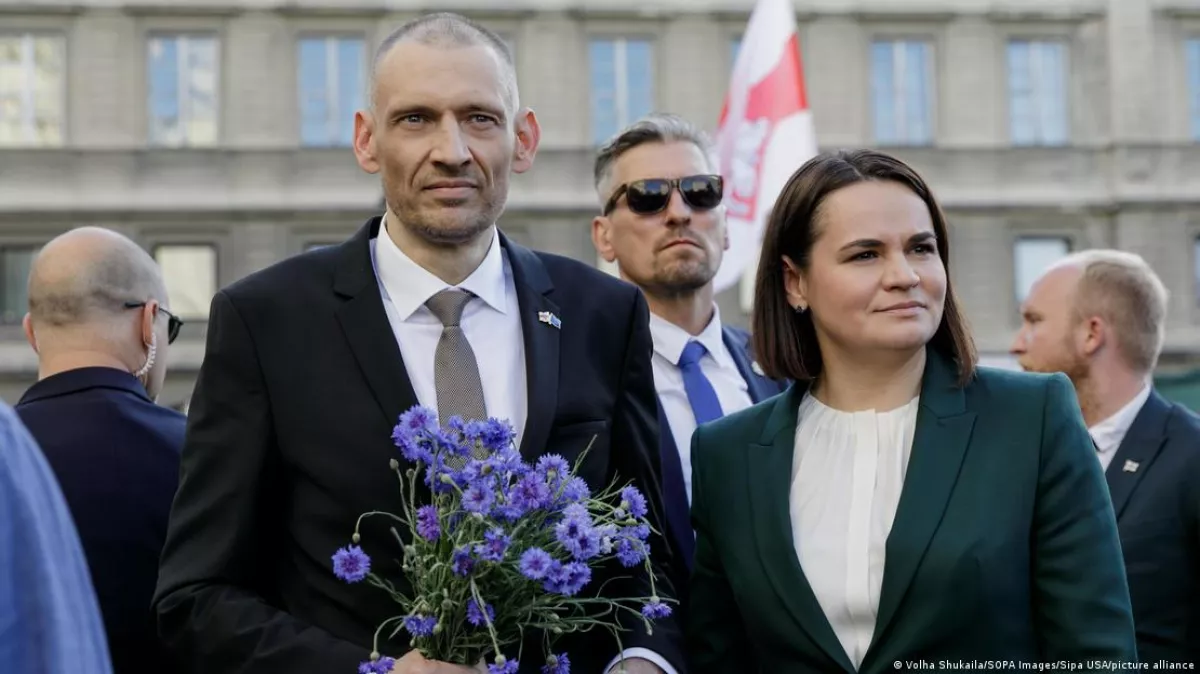
He was considered by the protest organisers as the key presidential candidate for the 2020 elections and was supposed to become the leader of the street opposition. However, following his arrest, the candidacy had to be urgently transferred to his wife, Sviatlana Tsikhanouskaya. A housewife who had never been involved in or interested in politics, she struggled for a long time to assume the role imposed on her.
Now, in the media sphere, Sergei Tikhanovsky—a blogger with a strong presence and a flair for performance—is rapidly beginning to overshadow Sviatlana Tsikhanouskaya. The President of Belarus pardoned Tikhanovsky, despite even the threats he made to his children while under arrest.
Likely, many members of the current émigré opposition breathed a sigh of relief upon learning that Nikolai Statkevich, known for his uncompromising nature, refused to be released. Statkevich had previously struggled to get along with other opposition leaders, whom he considered insufficiently radical. Known as “Mikola” among nationalist allies, he could even afford to criticise Western sponsors of the Belarusian opposition. Therefore, his appearance now in Warsaw or Brussels could have had a genuinely explosive effect.
The current twists and turns in Belarus–US relations once again demonstrate that a tightly woven knot of global contradictions between superpowers is at play, and Belarus has found itself at the very epicentre of these processes. Today, in the West, there are circles leaning toward a more moderate scenario for the conflict, as well as forces seeking to push it along the most radical path possible.
Belarus’s—and its people’s—position remains unchanged: stable and equal cooperation and peace for all people on the planet.








